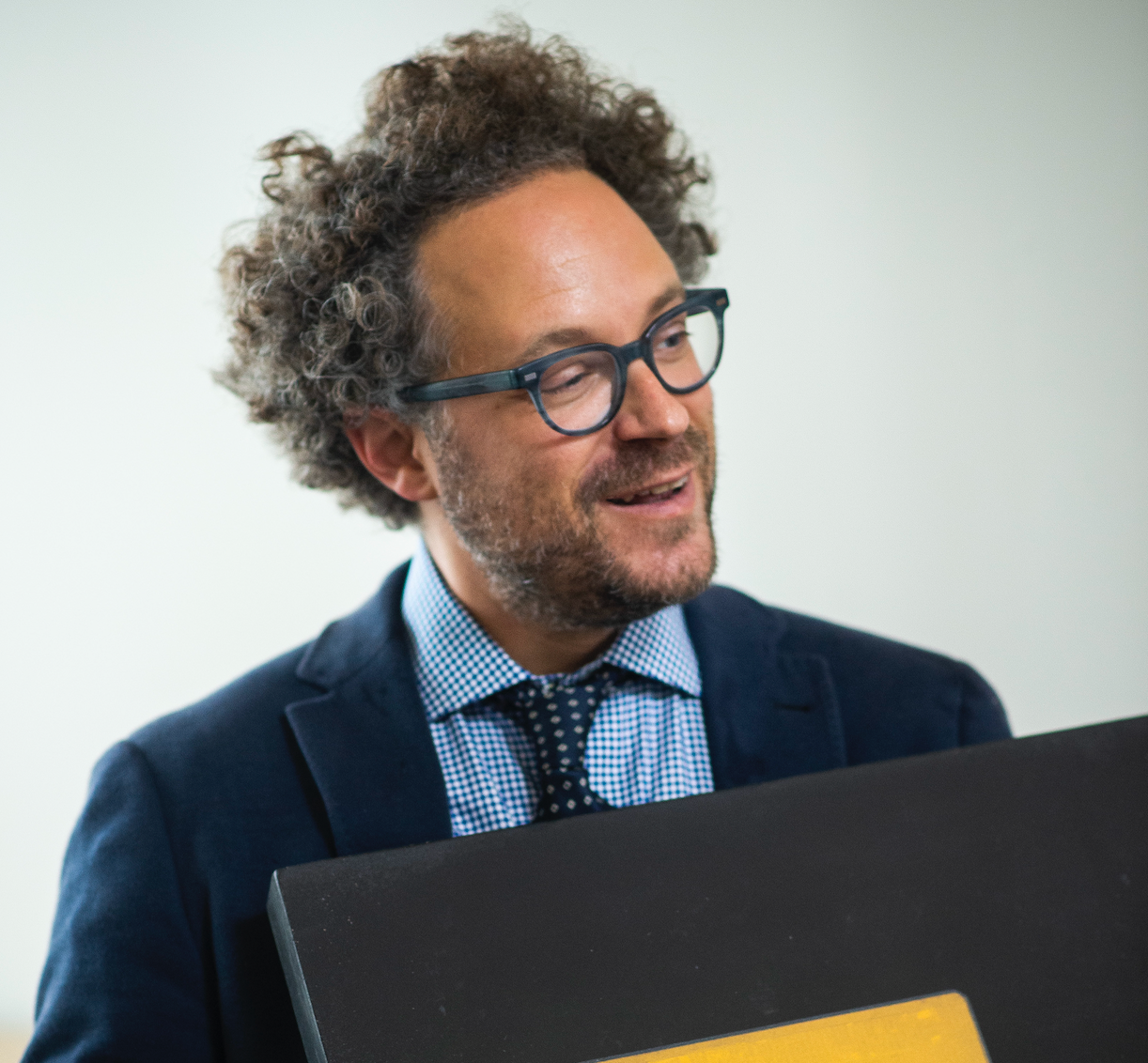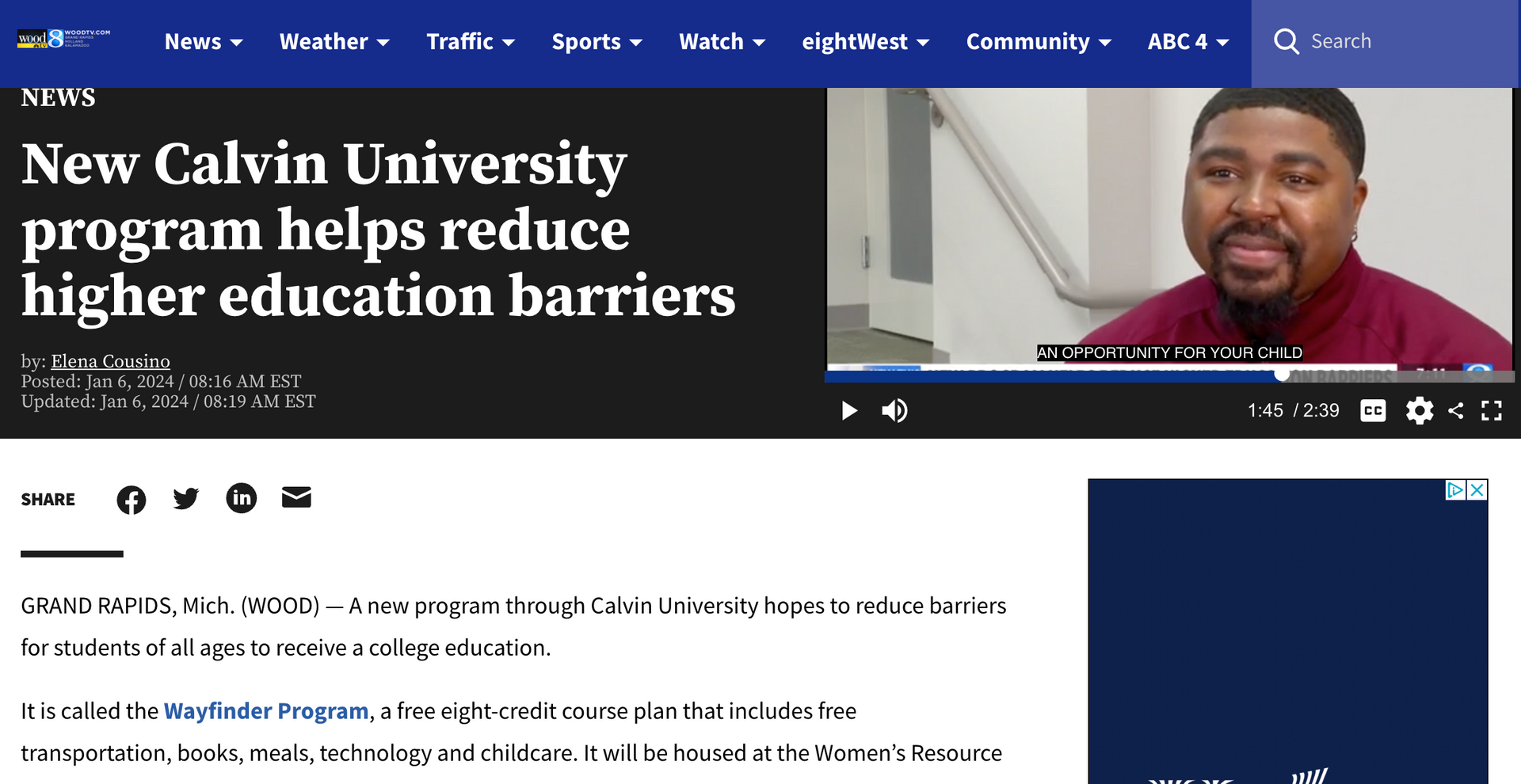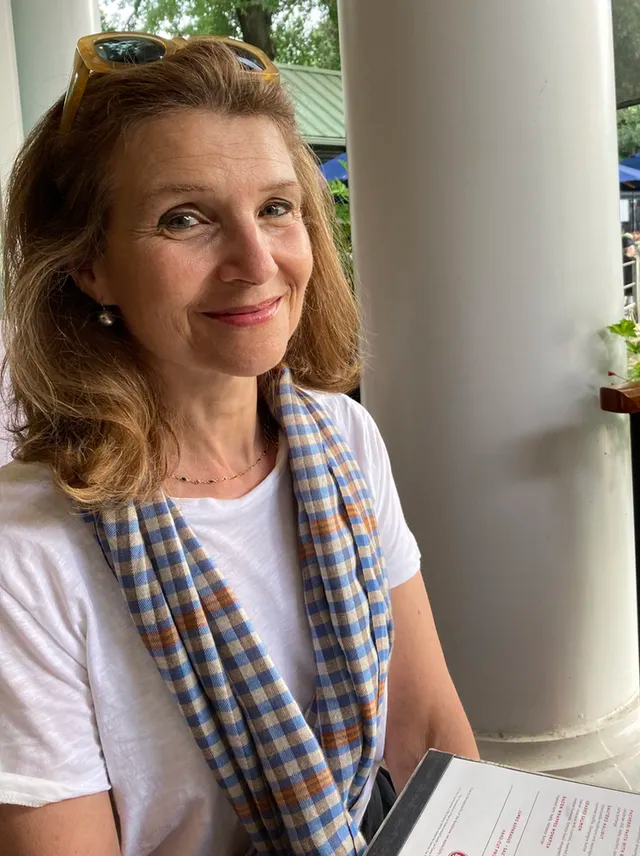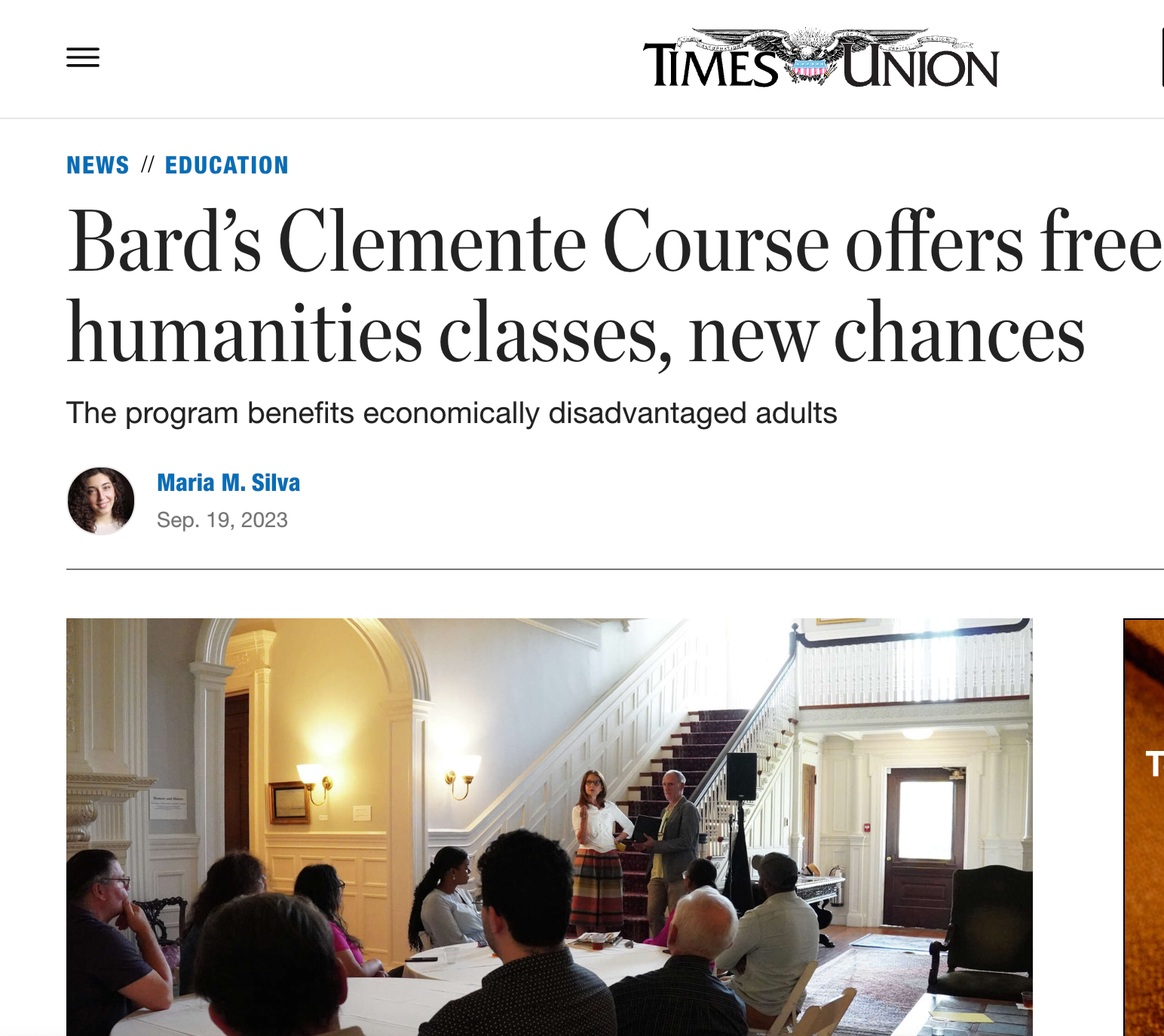
With 200,000 verses, the Sanskrit epic the Mahabharata is considered the world’s longest narrative. Erik Sean Montoya-Treanor, 2007 graduate of Jefferson Clemente , has been reading the text slowly as a way of better understanding Indian mythology and philosophy. “It’s like the Bible mixed with Lord of the Rings, all in poetry,” he said.
It was an obvious jump to the Mahabharata from the Bhagavad Gita , a part of the epic which Erik first encountered in Clemente. He had been raised Catholic and never explored the foundational texts of world religions until he enrolled in the course. There he read stories from the Book of Genesis as well as Sufi texts and the Bhagavad Gita. These days he rereads the Gita every year and loans copies out to his friends.
“I’m fascinated with how Sanskrit is the skeleton on which our modern language is built,” he said. “And every time I read it, I find something new. We’re always learning, and there’s no reason to stop.”
Though Erik’s intellectual curiosity is clear, he wasn’t sure at first about enrolling in Clemente. He was working at a video store in Port Hadlock, WA, where Lela Hilton was a regular customer. Lela, who was then academic director of Jefferson Clemente and is now executive director of the national Clemente Course , often asked Erik for film recommendations. He turned her on to historical documentaries and quirky comedies like “Waiting for Guffman.” When she told him about Clemente, he hesitated.
Though he was a self-proclaimed “bookworm,” after dropping out in the 10th grade, Erik didn’t believe he could “kick it” in college. A peek at the Clemente curriculum changed his mind. “What drew me to it was the humanities focus,” he said. “I love history. English was my best class, and I’ve always been a sucker for art.”

After graduating from the course in 2007, Erik went back and took it again in 2009, just for the experience of encountering the texts anew. He also earned his GED and earned his associate’s degree. He’s begun work toward a bachelor’s degree with the intention of becoming a history teacher. His Clemente classes, with texts that amplified the voices of women and indigenous and formerly enslaved peoples, expanded his notions of history. He wants to do the same for his students.
“To study history you have to think critically,” he said. “No matter our age, we can all learn the skills of looking closely at things and asking big questions.”
In the meantime, he’s bringing his belief in intellectual curiosity and challenging our ideas to raising his three kids as a single dad. Though he once thought he wouldn’t succeed in college, he knows he can succeed and that being open to discovering new things is key.
“If you go through life trying not to look stupid, you’re never going to learn anything,” he said. “I tell my kids all the time, the smartest thing you can say in the world is ‘I don’t know what that is, tell me more about it.’”







